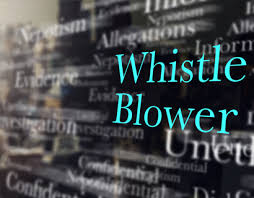Key Takeaways
- SEC whistleblower programs provide protection and incentives for insiders to report securities law violations.
- Understanding how these programs navigate can help maintain market integrity and protect investors.
- Specific eligibility requirements and procedures for whistleblower submissions need careful attention.
What Are SEC Whistleblower Programs?
SEC whistleblower programs are initiatives by the U.S. Securities and Exchange Commission (SEC) designed to encourage individuals to report violations of securities laws. These programs were launched after the Dodd-Frank Wall Street Reform and Consumer Protection Act, which sought to enhance the SEC’s ability to detect and address illegal activities in financial markets more efficiently. For those considering reporting such violations, consulting with an SEC whistleblower attorney can be a prudent step to ensure your rights and interests are protected throughout the process.
By providing legal guidance, SEC whistleblower attorneys can help individuals understand their rights and obligations, ensuring accurate and impactful information. The attorney is crucial in navigating the complex legal landscape, offering protection and advice. They can help you prepare your submission comprehensively, enhancing the likelihood of a successful outcome.
How SEC Whistleblower Programs Work
The SEC whistleblower programs offer monetary incentives and confidentiality protections to individuals who voluntarily provide original information, leading to successful enforcement actions. When a whistleblower submits information, the SEC evaluates it for credibility and importance. Whistleblowers may receive a portion of financial penalties resulting from their valuable insights into securities violations, making it a lucrative opportunity.
This mechanism serves dual purposes: firstly, it uncovers misconduct that might otherwise remain hidden, and secondly, it acts as a strong deterrent against potential violators. The SEC promotes accountability and transparency in financial markets, safeguarding whistleblower anonymity and encouraging participation through programs that maintain market stability and integrity. Whistleblowers can feel secure knowing their identity will be protected to the fullest extent possible.
Eligibility Requirements
To qualify for the SEC whistleblower program, individuals must meet specific criteria:
- Individuals must provide original information that has yet to be discovered to the SEC, ensuring the uniqueness and value of the input.
- The information must lead to a successful enforcement action with penalties exceeding $1 million, demonstrating its significance and impact.
- Whistleblowers can be anyone, including corporate insiders, investors, and other market participants, making the program inclusive and wide-reaching.
These requirements are designed to ensure that the program attracts significant and previously undisclosed information, maximizing its effectiveness in uncovering violations and enforcing securities laws. Potential whistleblowers must understand these criteria to prepare and present their information compellingly. Misunderstanding or overlooking these eligibility criteria can result in the disqualification of the submission, so careful preparation and comprehension are essential.
Protection and Incentives
A primary objective of SEC whistleblower programs is to shield individuals from retaliation by their employers. The SEC enforces strict anti-retaliation measures to guarantee the safety and security of whistleblowers. These measures include legal protections against job termination, demotion, or harassment linked to their whistleblowing activities, ensuring whistleblowers can report misconduct without fear of personal or professional retribution.
Financial incentives, ranging from 10% to 30% of sanctions, motivate potential whistleblowers, creating a safe environment where individuals feel safe and are rewarded for providing valuable information. This structure ensures that the risks taken by whistleblowers are balanced with considerable benefits, thereby motivating more individuals to participate in the program.
How to Submit a Claim
Submitting a claim to the SEC whistleblower program involves several key steps:
Gather all relevant evidence and documents that substantiate the violations of securities law. This includes emails, internal reports, and any other pertinent data. The more detailed and comprehensive your evidence, the better your chances of making a successful claim.
Submit a TCR Form (Tip, Complaint, or Referral) to the SEC Office of the Whistleblower. This form is the official means of lodging your information with the SEC and must be filled out meticulously to avoid any discrepancies or omissions that could hinder the investigation.
Maintain confidentiality by not discussing the submission details with others, preserving the investigation’s integrity, and protecting yourself from potential reprisals. The SEC’s confidentiality measures are designed to protect you, but you must also take personal precautions to ensure that your identity and the details of your submission remain undisclosed.
The procedural aspects can be intricate, and obtaining guidance from legal experts can be beneficial. Legal advisors can help ensure that all necessary documentation is in order and that the submission adheres to SEC guidelines, enhancing the likelihood of a successful claim. They can offer continuous support and advice to assist you in overcoming any obstacles that may arise during the investigation process.
Tips for Potential Whistleblowers
Considering becoming a whistleblower? Here are some tips to help you navigate the process:
- Understand the eligibility criteria and ensure you have credible, original information that can significantly impact the investigation. Familiarize yourself with the SEC’s requirements and guidelines to ensure your submission is valid.
- Maintain comprehensive records of any illegal activities, including supporting documents and evidence, as detailed documentation significantly impacts the success of your submission.
- Legal advice is crucial for navigating whistleblower submissions, as experienced attorneys can provide guidance on understanding rights, preparing evidence, and submitting claims effectively.
- Maintain confidentiality to protect your identity and related evidence, ensuring the investigation’s integrity and safeguarding against potential retaliation. Take personal precautions to protect your identity, complementing the SEC’s confidentiality measures.
Staying informed and prepared can significantly enhance the chances of a successful whistleblower claim, contributing to enforcing securities laws and financial market protection. The SEC’s whistleblower program provides a crucial avenue for individuals to report misconduct and play a part in upholding the integrity of financial markets, ensuring that they remain fair and transparent for all participants.

